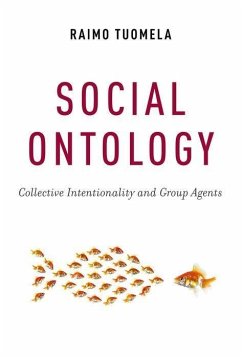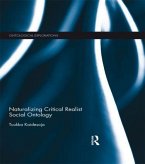Social ontology, in its broadest sense, is the study of the nature of social reality, including collective intentions and agency. The starting point of Tuomela's account of collective intentionality is the distinction between thinking and acting as a private person ("I-mode") versus as a "we-thinking" group member ("we-mode"). The we-mode approach is based on social groups consisting of persons, which may range from simple task groups consisting of a few persons to corporations and even to political states. Tuomela extends the we-mode notion to cover groups controlled by external authority. Thus, for instance, cooperation and attitude formation are studied in cases where the participants are governed "from above" as in many corporations.
Hinweis: Dieser Artikel kann nur an eine deutsche Lieferadresse ausgeliefert werden.
Hinweis: Dieser Artikel kann nur an eine deutsche Lieferadresse ausgeliefert werden.








